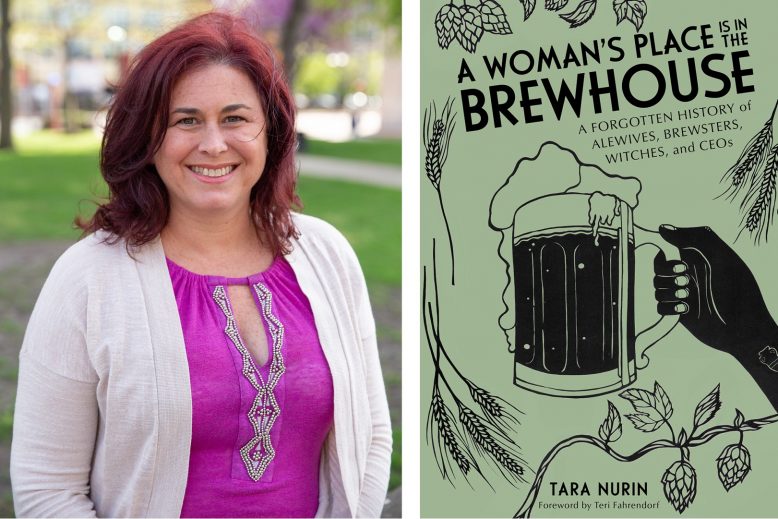
Craft beer has a gender problem. “People still deeply associate beer drinking with men,” says Tara Nurin, author of the new book A Woman’s Place Is in the Brewhouse: A Forgotten History of Alewives, Brewsters, Witches, and CEOs (Chicago Review Press).
In addition to ignoring the many women who drink beer, the brewing industry has long had a reputation for being a boys’ club. According to a member survey conducted by the Brewers Association in 2019, the industry heavily skews male. Of 9,000 independently owned craft breweries, women make up only 22.6 percent of owners.
Women are far outnumbered by men in every brewery position except one: non-managerial service staff, such as bartenders. In that role, they comprise 54 percent of tipped front-of-house positions.
In her book, Nurin sets out not only to showcase the women pushing for equity in the craft-beer industry, but also to reveal the important roles women have always played in brewing. (If Nurin’s name sounds familiar, that’s because for several years she wrote New Jersey Monthly’s Libations column.)
As a Camden resident with vast knowledge of the New Jersey craft beer industry, Nurin not surprisingly features many Garden State women in her book. She explores the Colonial roots of beer in New Jersey, including the story of Elizabeth Haddon, after whom Haddonfield is named. Haddon was one of the first home brewers in America. Her brewhouse, built in 1713 and still standing (at 201 Wood Lane), was set apart from the living quarters and dedicated to brewing medicinal concoctions and beer, which was consumed more than water during that era.
[RELATED: Was Elizabeth Haddon New Jersey’s First Female Brewer?]
Before researching her book, Nurin had never heard of Haddon, despite living less than 10 miles from Haddon’s brewhouse. “That’s a serious illustration of how forgotten [women in beer] are,” she says.
Nurin also talks to barley grower and maltster Hillary Baker Barile, who oversees malting at her family’s Rabbit Hill Farms in Shiloh. Of all New Jersey brewers, Nurin spends the most time with Torie Fisher, an Army combat veteran and openly lesbian brewer who owns Backward Flag Brewing in Forked River. She also looks at how leaders like Alexis Degan, executive director of the New Jersey Brewers Association, are working to make the industry more inclusive for all.
Researching the book, Nurin encountered voids. That wouldn’t have been the case had she been writing about men in beer. “Women’s lives, historically, haven’t necessarily been considered interesting or important enough to document,” she says. While women were never strangers to brewing, they often did so at home, where it was considered just another part of domestic work. “That sort of thing never made it into history books,” Nurin says, “so it’s up to us now to unearth these stories.”
It seems that change is on the horizon. “The numbers of women in craft beer are burgeoning,” she says, “and that’s very encouraging. Still, there’s an outmigration of women who are sick of the misogyny they endure every day. I’d like to see that stop. There’s a lot more strength in numbers.”



